“How do I kill all the bugs in my garden?”
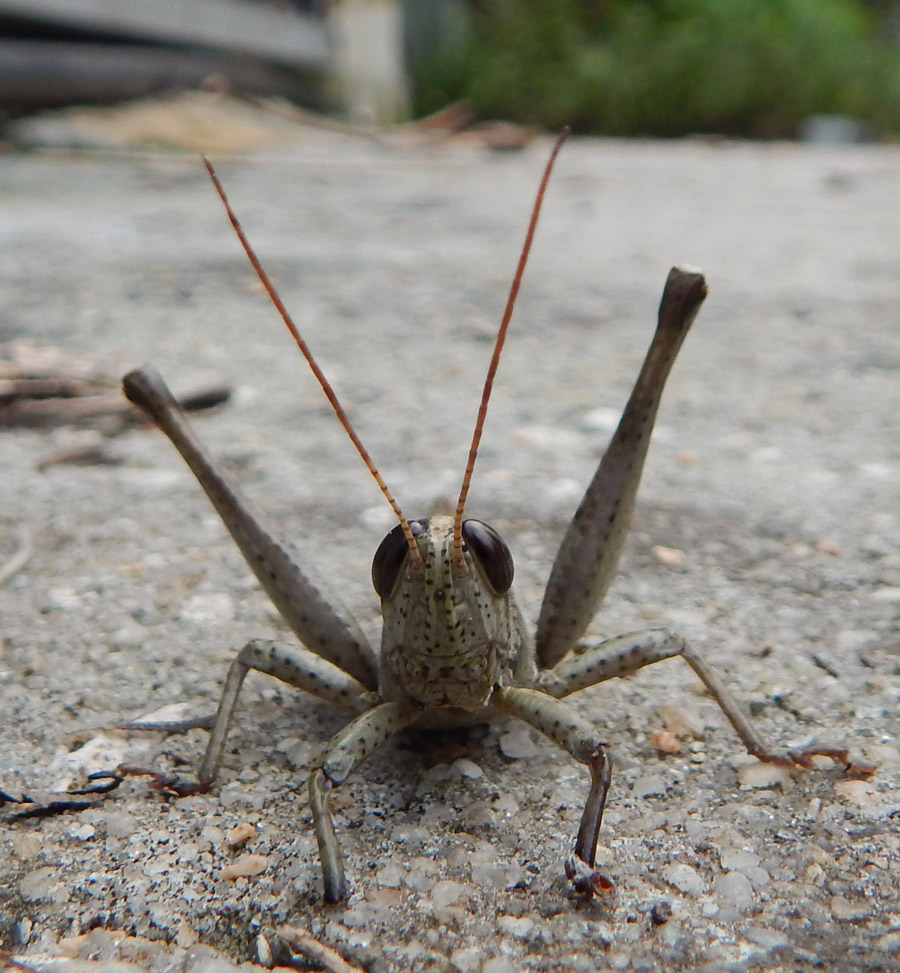 If you hang around gardening forums and newbie gardeners, you’ve probably heard that question before.
If you hang around gardening forums and newbie gardeners, you’ve probably heard that question before.
Bugs are frustrating. Right at the point you think you’ve really got your tomatoes going perfectly or your squash plants are loaded with blossoms and young fruit…
…something terrible will happen. Stink bugs, horn worms, pickle worm, cutworms, leaf-footed bugs, lubbers, heck, even termites will sometimes show up in the garden and wreak havoc.
I know why people ask how to kill all the bugs in their gardens, and that question can be answered. It’s definitely possible to kill all the bugs in your garden – and today I’m going to give you five powerful ways to end all insect life.
Solution #1: Kill all the Bugs With Fire
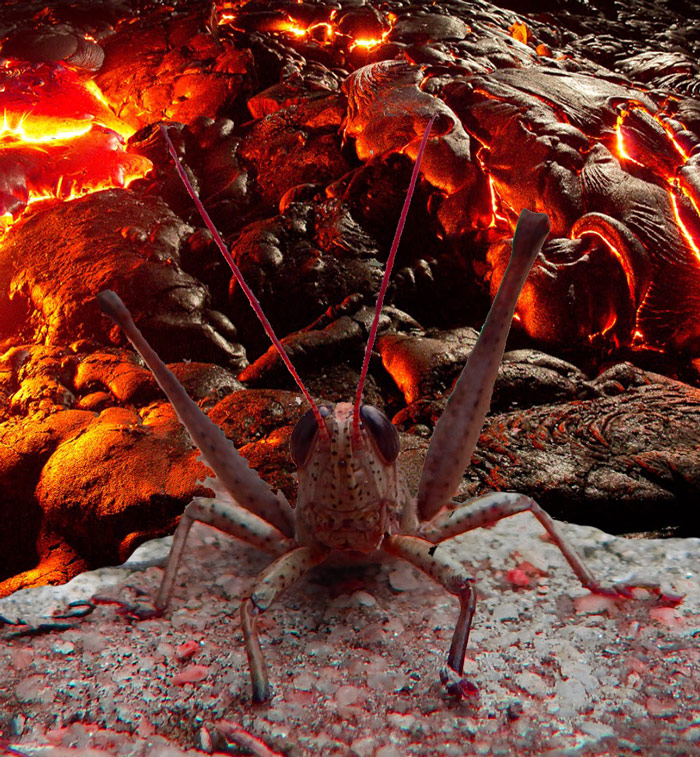 Fire purifies and renews. There are no stink bug phoenixes that will arise from the ashes of a well-torched garden space.
Fire purifies and renews. There are no stink bug phoenixes that will arise from the ashes of a well-torched garden space.
The trick with burning all the insects in your garden is to do it when nothing is growing. I recommend an oxy-acetylene torch; or, if you can get it, a flamethrower.
Just run over the area thoroughly, destroying all plant and animal life. Bonus points if you melt the top layer of soil into glass.
Solution #2: Kill all the Bugs With Ice
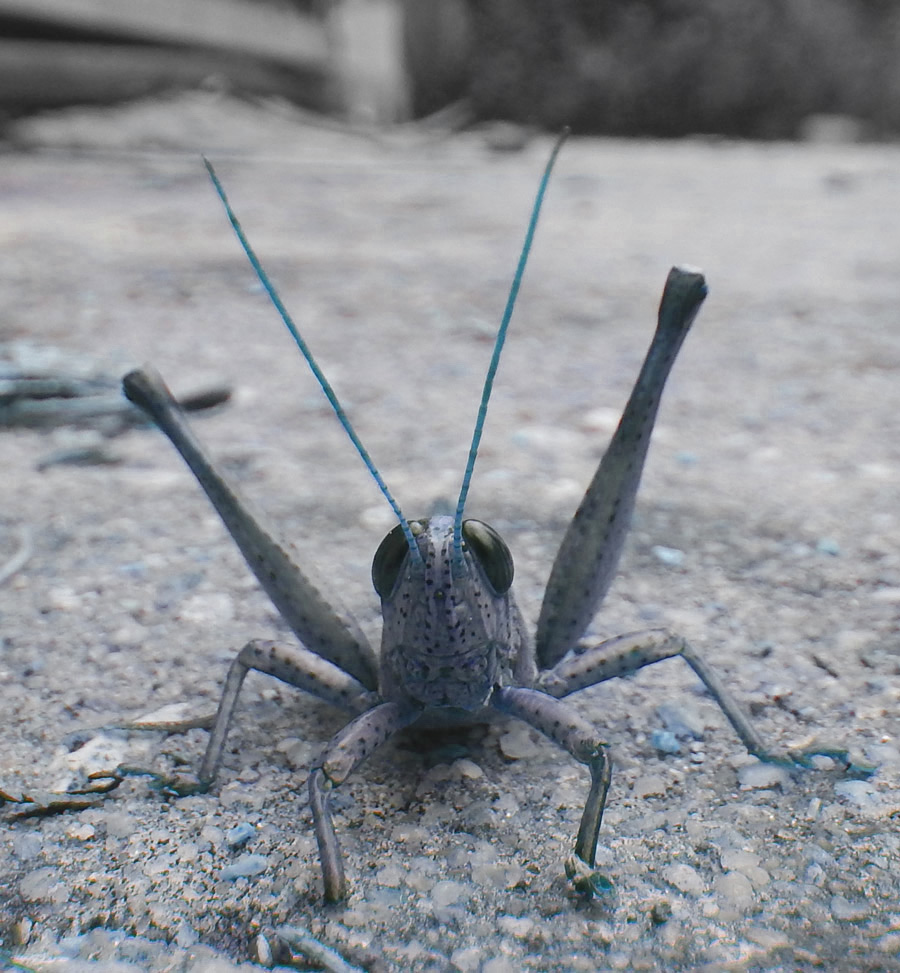 This also requires having an empty garden plot when you start, since icy temperatures will also destroy plants.
This also requires having an empty garden plot when you start, since icy temperatures will also destroy plants.
Here’s how to get a nice clean…and cold… slate in the garden.
First, go out and buy yourself a few cubic yards of dry ice. Dry ice is just frozen carbon dioxide, but it’s much, much colder than regular old water ice.
Then, pile that ice over your garden bed and cover that pile of dry ice with lots of blankets to keep the cold in as long as possible. That will kill everything in there!
Solution #3: Kill all the Bugs with a Custom Super Pesticide
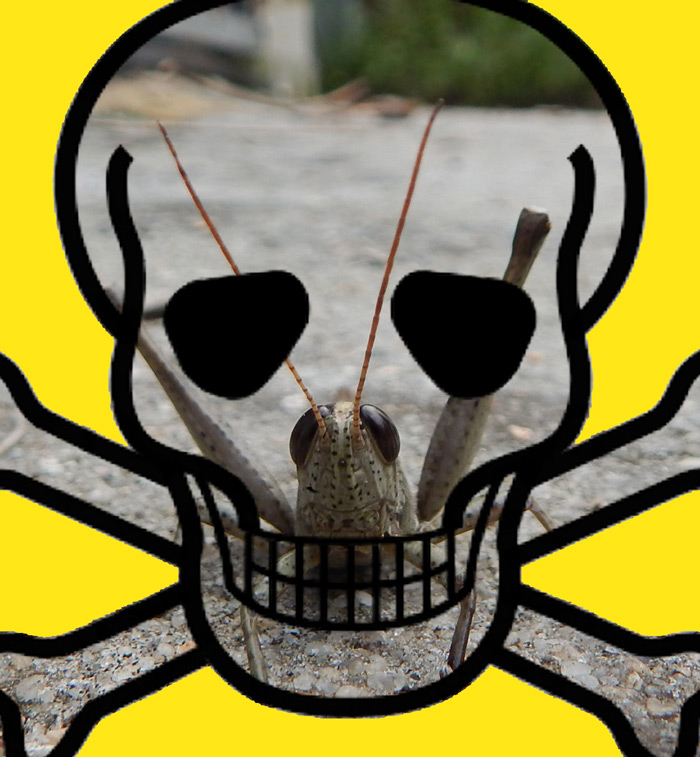 If you wander down the rows at any home improvement or garden center, you’re bound to see pesticides for everything from ants to fleas, chinch bugs to spiders. Some brag that they’ll kill 100 or more species of insects.
If you wander down the rows at any home improvement or garden center, you’re bound to see pesticides for everything from ants to fleas, chinch bugs to spiders. Some brag that they’ll kill 100 or more species of insects.
That’s not good enough. All bugs must die.
If you want to kill all insects in your garden, it would be best to mix as many of these pesticides as possible and apply them at much higher rates than is recommended on the labels.
Solution #4: Kill all the Bugs With Poison Gas
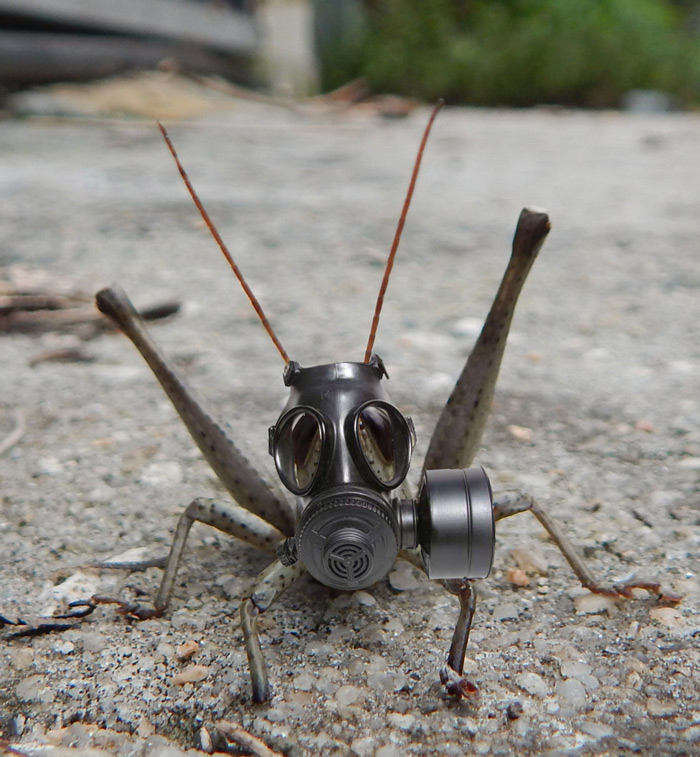 Back in World War I, mustard gas was used with great brutality to maim, injure and kill soldiers on both sides of the war.
Back in World War I, mustard gas was used with great brutality to maim, injure and kill soldiers on both sides of the war.
What most people don’t realize is that you can make something similar at home for much less than it costs to buy most pesticides. All you need is some potassium permangranate and hydrocloric acid. Mixed, they make a powerful cloud of green-yellow chlorine gas that’s pretty good at eating through organic matter – like bugs! Build a tent over your garden with plastic, carefully taping all the seams, then pour hydrocloric acid into a few cups of potassium permangranate in the bottom of a bucket under the tent. Get out quickly, because chances of death are really high. If you don’t have either of these chemicals, you can also just mix bleach and ammonia, which also makes a horribly toxic gas capable of burning out your lungs… and killing hornworms!
Solution #5: Kill all the Bugs With Nuclear Radiation
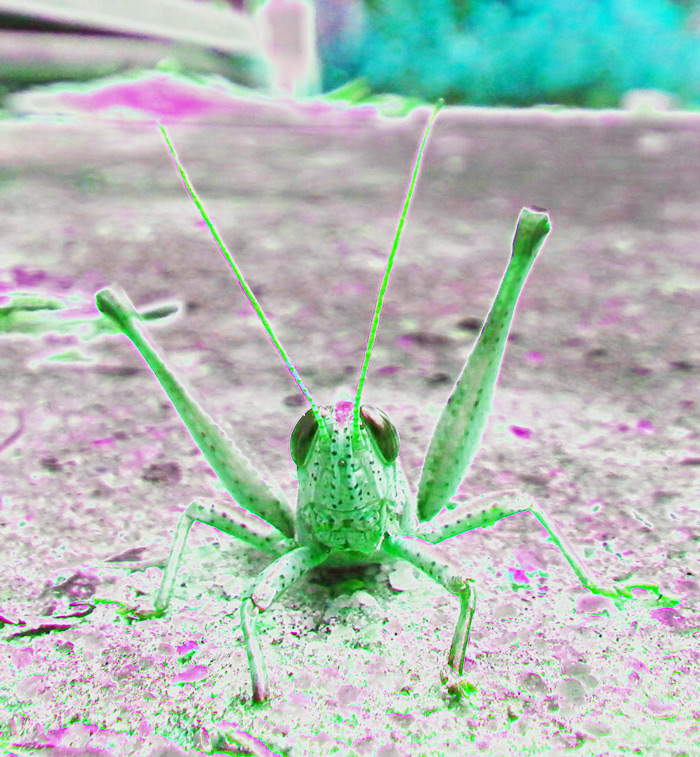 If the four remedies above don’t wipe out all insect life, you may have to go all the way and split the atom.
If the four remedies above don’t wipe out all insect life, you may have to go all the way and split the atom.
This really isn’t easy at home; however, if you can manage to till plutonium into your garden soil, it will end all life.
The downside is, of course, that you’ll also have to wait a few thousand years before you can pop in some seeds or transplants.
But really – isn’t that a small price to pay for the knowledge that you’re totally and utterly bug-free?
OKAY THIS POST MUST BE A JOKE!
If you’re making a toxic shopping list: stop right now.
I’ve (obviously, I hope) been pulling your leg.
You don’t need to kill all the bugs in your garden. Killing insects has become less and less important to me as I’ve grown in my gardening skill.
Yes, I do pull horn worms, knock stinkbugs into soapy water and blast aphids off my tender plants with the hose. Every once in a while.
Once in a long while.
Why? Because I’ve learned to start…
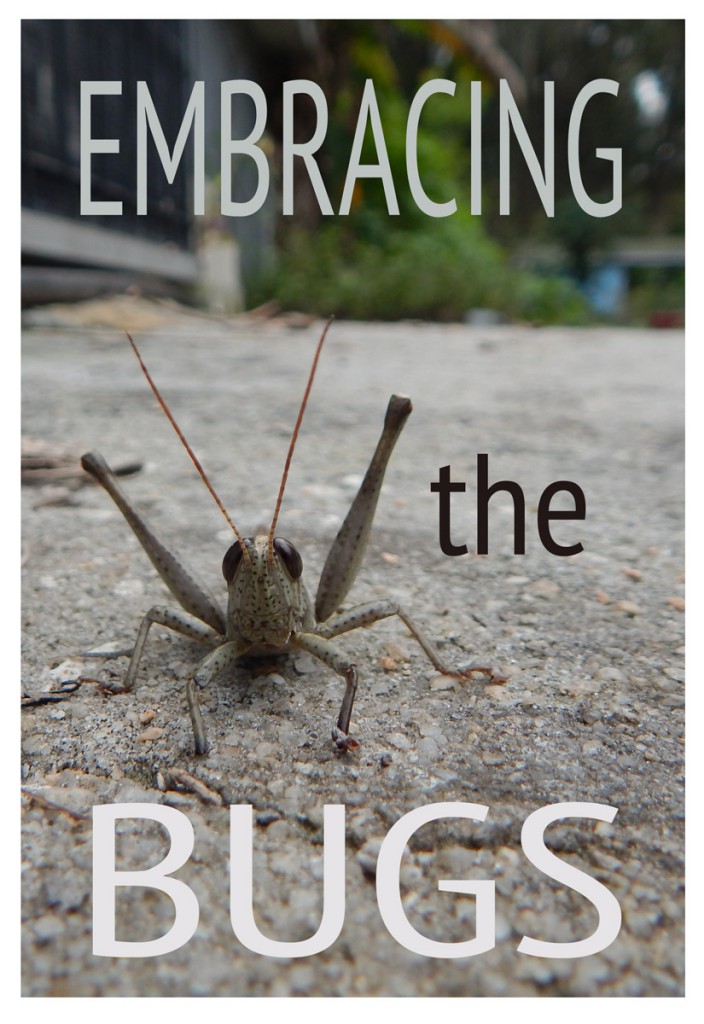
Embracing the Bugs
Not literally, of course. I’m not starting a “Hug the Hornworms” charity any time soon.
I’m just urging you to quit thinking about how to kill all the bugs… and how instead to add more bugs until the pest populations come under control.
As I wrote in the pest control chapter of my new book Grow or Die: The Good Guide to Survival Gardening:

My second Amazon bestseller – coming soon in paperback
“You don’t want to lower the insect population; you want to raise it dramatically!
Look at what happens with deer when you remove the predators. Overpopulation quickly leads to denuded forests, landslides from erosion, and eventually, starving deer. But when there are plenty of hunters, wolves, or tigers, the deer population comes under control, the remaining deer and forests are healthy. You don’t want to kill all the deer, and you don’t want to remove the predators, either.
Pests generally breed a lot faster than predators. They’re also the first thing to find your garden. If you spray to kill the pests, you’ll also knock out the predators in doing so. The pests precede the predators, meaning that just about the time they build up to plague proportions, there’s almost always a predator that’s going to appear and knock them down again.
The problem is, if you’re growing a garden in a well-kept yard with few shrubs, flowers, weeds or other places for the good guys, it takes them a lot longer to find your garden and the pests inhabiting it. Pests are great at finding your plants regardless, but when there are places for the good guys to live, they’ll be there when you need them.”
I’ve created quite a few previous posts on the importance of a complete ecosystem to control pests, including how I got more birds on my property, how to build a solitary bee house, why I like snakes in my garden, and how to get ladybugs to stick around.
You don’t need to kill all the bugs. You rarely need to kill any bugs. When you kill what you think are the “bad bugs,” you also kill many good bugs.
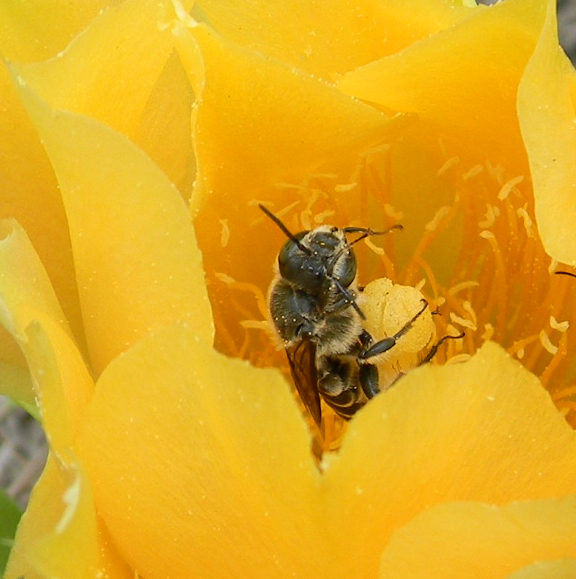
Spray poisons and you’ll kill pollinators
I’m not saying that as some kind of a bleeding heart raw foodie or something: I’m saying it because the more bugs you kill, the less bugs there are for the good guys to eat, and therefor the good guys often don’t show up or stick around.
It sounds counterintuitive, but it’s the truth: more bugs is a good thing. Wiping out all the insects is like wiping out all the bacteria in your digestive tract with antibiotics. It’s not a good thing.
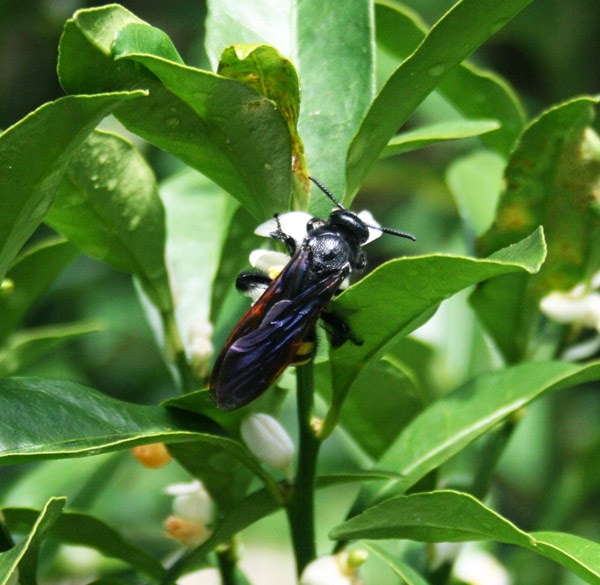
Wasps are pest killers
Plant lots of plants together. Create perennial garden beds where good guys can hide year-round. Put stick and rock piles at the edges of your gardens for snakes, toads, beetles and lizards. Hang up mailboxes so paper wasps can have a place to build their nests.
Just don’t kill all the bugs in your garden. No matter how tempting it is.
Every piece of the ecosystem you remove is one more piece you’ll have to fill in.
Using insecticides (or ice, poison gas, fire, etc.) to kill all the bugs in your garden is like fixing a watch with a hammer.
Plutonium is too expensive anyhow.


16 comments
Toads are voracious bug eaters. Gotta love ’em.
I’m a huge fan of toads.
You nearly had me at the first part about fire, but then you said flamethrower and I caught on, haha.
The only thing I’ve used for bugs is BT for those stupid hornworms that get my corn plants, every.stinking. Time. One day, I will eat homegrown corn…one day…
But, I’ve enjoyed watching a parasitic wasp carry and sting a tiny hornworm, and a little lizard snatch a moth right out the air and eat it on the side of my raised bed garden. And every year, my acre peas WILL be infested with aphids but they don’t much mind and right about when I think they’re going to fall over from the weight of the aphids I see an insurgence of lady bugs who can eat them faster than the aphids reproduce.
Sunflowers are lady bug magnets. If I plant them with my peas, then I won’t have to wait as long for the lady bugs to wipe out the aphids. The good ole companion plant.
It also helps to plant plants that are tough as nails, like acre peas, and can handle bug pressure, heat, humidity, drought, and just keep on truckin. Your list of favorite survival plants has pointed me towards some good plants that fit that category. I now have two banana trees, more sweet potatoes and am on the lookout for some Alata bulbils.
How do I get rid of mosquitoes in my grow boxes during the growing season?
Thank You,
Ted
I actually responded to your question in the post from the 5th – here’s what I wrote:
“These things work really well: http://amzn.to/20jFVB1
I’ve used them in my water chestnut ponds before and they’re safe.”
They work great.
In over 40years of organic gardening, I have found that when my plants are happy they are rarely attacked by bugs. Snails and slugs yes, but egg shells and coffee grounds slows them down. The first season or two of a new garden bed seems to have more problems. Once the compost and soil blend to the right degree for the crop, the plants usually have few problems. I use fresh neem leaves as a mulch on new beds and have very few problems. Ants, nasty biting ones in my garden are sometimes a problem but citrus peel and fresh neem leaves have made them minor now. I even use neem leaves both inside and outside the chicken house and sheep barn to keep termites and ants under control. The chickens like to eat neem also.
The nuke photo made me laugh. Good photoshop job.
I encourage anoles of every kind with various lizard sex hotels (piles of undisturbed coquina in sheltered spots) and plenty of bird habitat (a thickly grown Zone 5), and even embraced wasps (metaphorically, of course). I have few serious pest problems, and when I do it’s usually because I’ve done something dumb.
Great content! I love the style of writing. You made a post about getting rid of pests funny, which NEVER happens. The “Nuclear Radiation” part got me.
With that said, the section on Embracing the Bugs really is hard for most to wrap their head around, but makes absolute sense when you look at it from the “big picture” perspective.
Anyway,
Keep up the good work, and great tips!
Thank you. Good luck with your business, too.
So, what like to eat chinch bugs?
Birds, for one. Interesting ideas here: http://www.environmentalhealth.ca/chinch.htm
Thanks for sharing the laugh. I’ve heard before that it’s best to let nature run it’s course. Introducing predators or letting them into your garden is a much better way to control pests than torching your garden!
I understand the idea of leaving the bugs alone. I have a 14 year old rubber plant that has been doing real good except for the winter time if I do not cover it. I live in Phoenix, AZ it is summer right now and my plant is not doing well at all. I was raking the dead leaves from the ground and noticed a bunch of black bugs on the trunk. I wonder if it is the black bugs killing my rubber plant.
It’s possible. The heat, however, is the likely culprit. Nothing much is happy during a Phoenix summer!
Great content, David! Very funny and creative but ALL TRUE. Love the bug with the gas mask. I guess you persuaded me not to burn my garden, instead, find more good bugs. :)
kill all bugs.
Comments are closed.